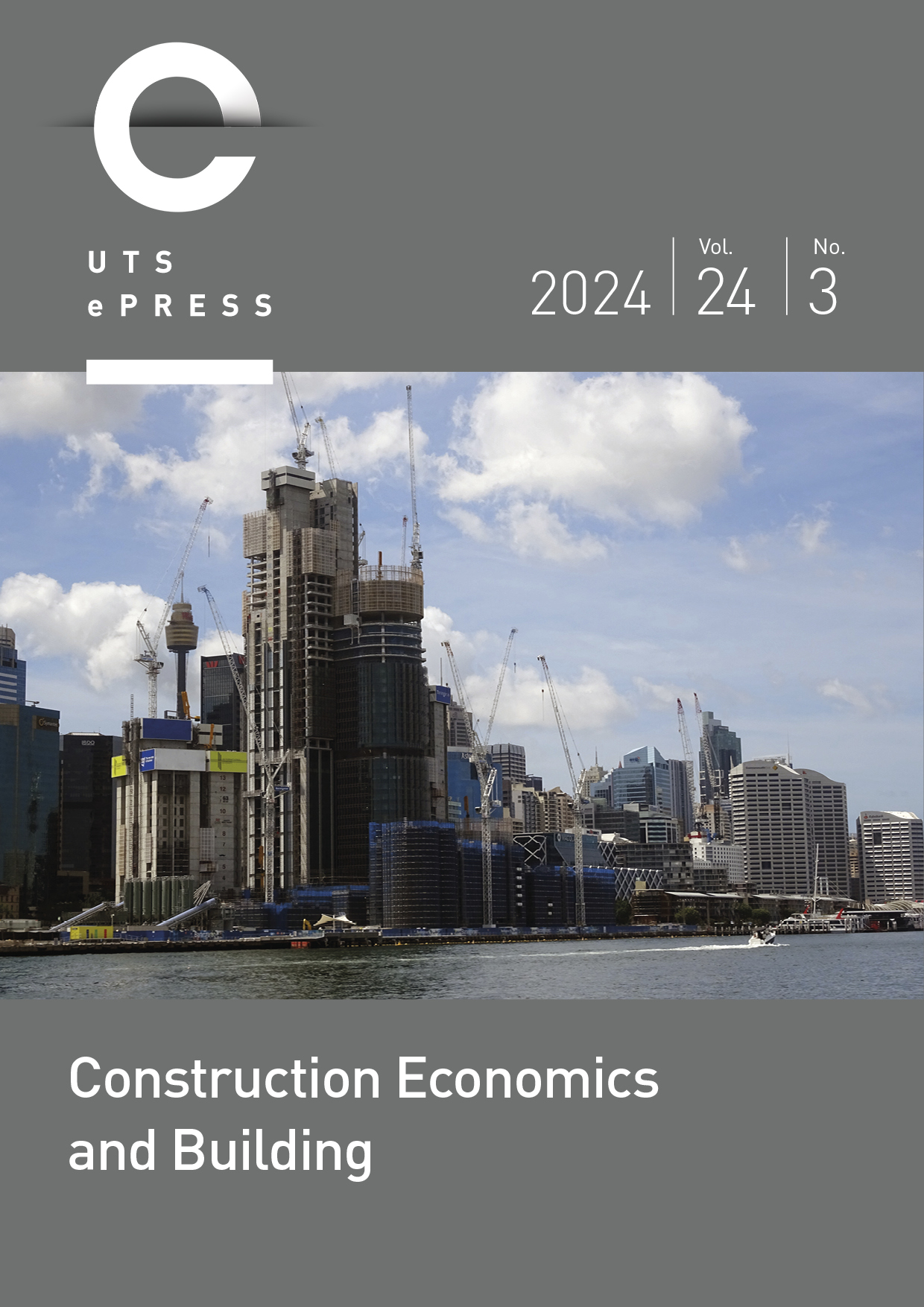Editorial: Special Issue - Economics in Digital Construction
Main Article Content
Abstract
Welcome to this special issue of our CEB journal, dedicated to exploring the multifaceted economic dimensions of digital construction within the Architecture, Engineering, Construction, and Operation (AECO) sector. As digital technologies increasingly spread throughout this sector, they bring about transformative impacts not only on how projects are designed and managed but also on the broader economic landscape. The rapid adoption of technologies like Building Information Modelling (BIM) and digital asset management systems has set a new paradigm in project efficiency and data utilisation. These advancements promise substantial economic benefits, ranging from increased productivity to enhanced decision-making capabilities, which, in turn, can spur significant growth in the broader economy. However, efficient and fair distribution and diffusion of these benefits in society is not always given, as stronger economies can more efficiently utilise the benefits of Digital Construction compared to weaker economies. Consequently, there is a need signaled for structural reforms in the latter, to improve the rate of integration of digitalisation in the construction sector (Kapogiannis, et al., 2023). Climate change is also a factor that now poses challenges for the construction sector, with digitalisation a key element able to address these challenges.
Article Details
Section
Authors who publish with this journal agree to the following terms:
a) Authors retain copyright and grant the journal right of first publication with the work simultaneously licensed under a Creative Commons Attribution License that allows others to share and adapt the work with an acknowledgement of the work's authorship and initial publication in this journal.
b) Authors are able to enter into separate, additional contractual arrangements for the non-exclusive distribution of the journal's published version of the work (e.g., post it to an institutional repository or publish it in a book), with an acknowledgement of its initial publication in this journal.
c) Authors are permitted and encouraged to post their work online (e.g., in institutional repositories or on their website) prior to and during the submission process, as it can lead to productive exchanges, as well as earlier and greater citation of published work (See The Open Access Citation Advantage Service). Where authors include such a work in an institutional repository or on their website (ie. a copy of a work which has been published in a UTS ePRESS journal, or a pre-print or post-print version of that work), we request that they include a statement that acknowledges the UTS ePRESS publication including the name of the journal, the volume number and a web-link to the journal item.
d) Authors should be aware that the Creative Commons Attribution (CC-BY) License permits readers to share (copy and redistribute the work in any medium or format) and adapt (remix, transform, and build upon the work) for any purpose, even commercially, provided they also give appropriate credit to the work, provide a link to the license, and indicate if changes were made. They may do these things in any reasonable manner, but not in any way that suggests you or your publisher endorses their use.
